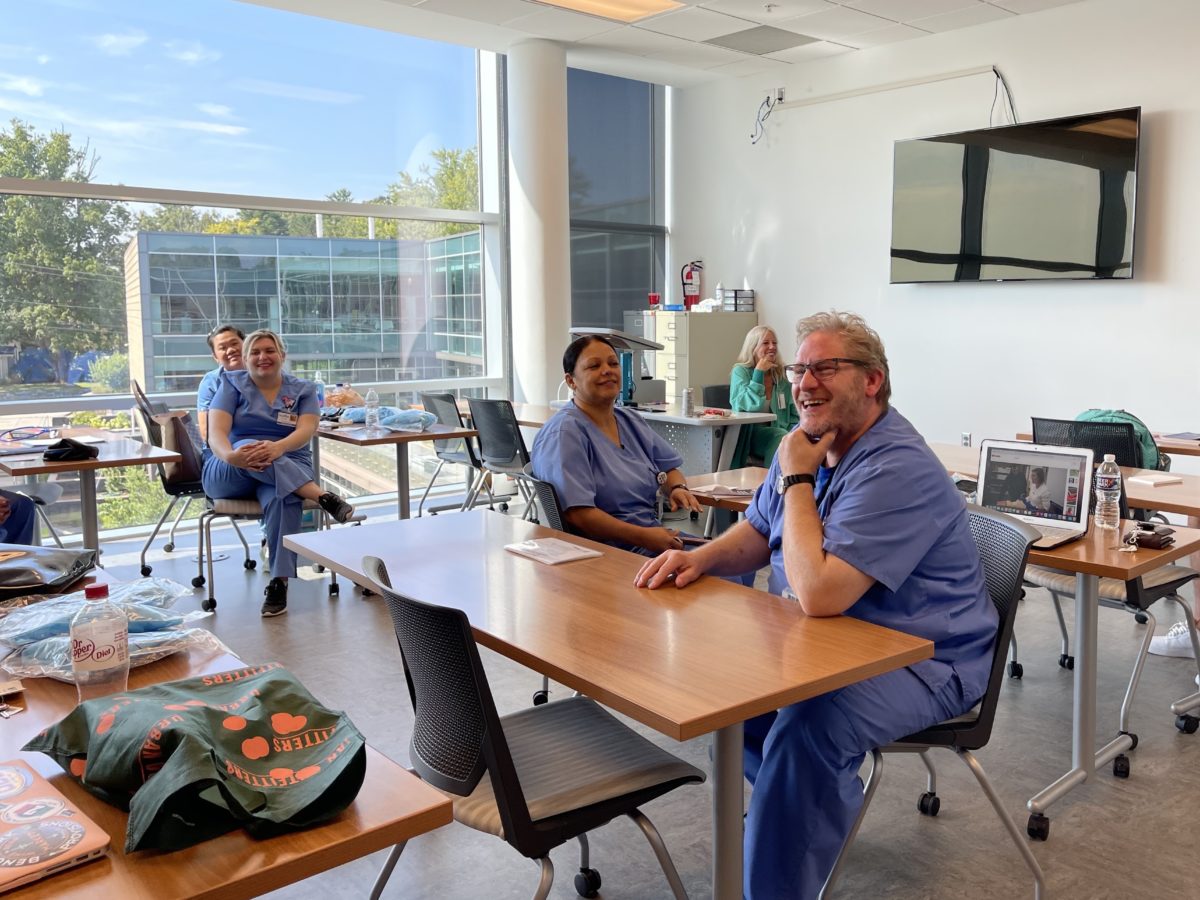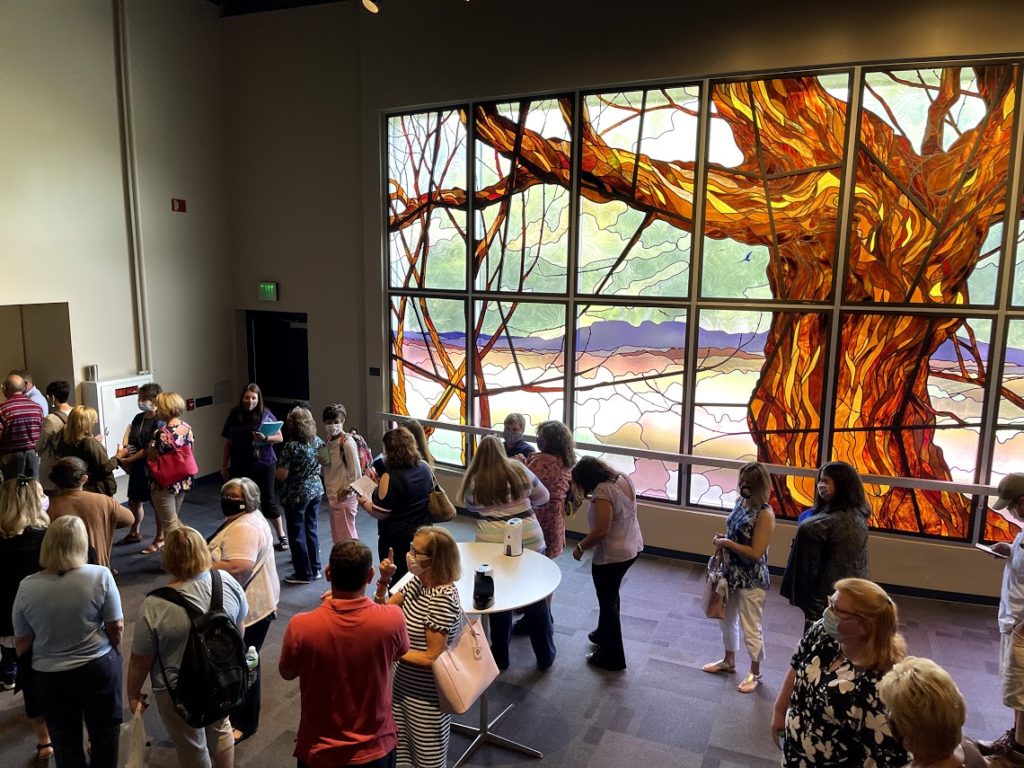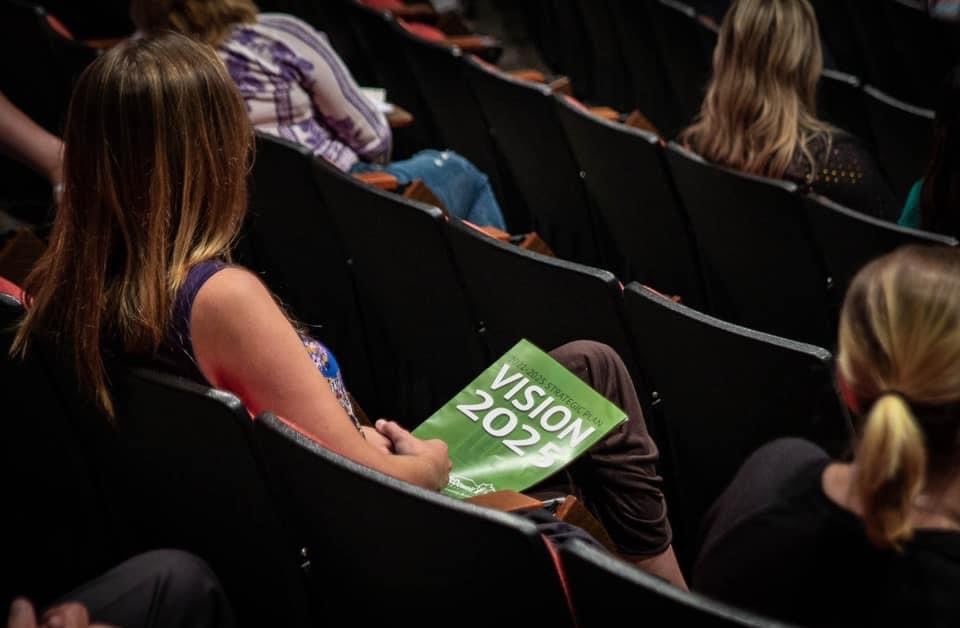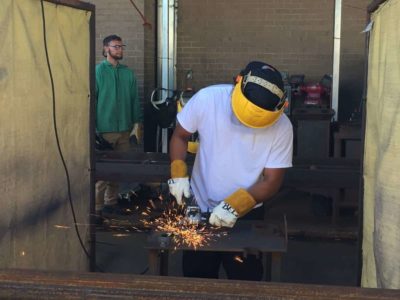
|
|
Despite shifts in day-to-day operations and instruction, community colleges in North Carolina never closed as COVID-19 surged through rural and urban communities. This remains true even as the delta variant sweeps across the state, disrupting carefully made fall plans.
For many, community colleges were and are a beacon – training frontline workers and providing short-term workforce credentials that will impact the state’s economy.
“The community college system, historically, has always been looked to as the economic driver of the state because we produce people that are ready to go to work,” said Mark Kinlaw, president of Rockingham Community College, in a previous interview.
As a new semester begins, community college faculty, staff, and administrators are talking about the changing landscape of higher education. At the convocations of Caldwell Community College & Technical Institute (CCC&TI) and McDowell Technical Community College, these conversations centered around growing and adapting.
What will the fall semester look like?
After a year of constant change, questions still remain.
What now? Where do we go from here?
The changes some colleges are making are a reminder the pandemic is not over. Several colleges are now requiring masks on campus.
In a campus-wide email, CCC&TI announced that beginning Aug. 11, masks would be required indoors regardless of vaccination status. Asheville-Buncombe Technical College (A-B Tech) made a similar announcement on Aug. 12.
In a press release, president John Gossett said A-B Tech is following the lead of federal, state, and local guidance and will require masks to be worn indoors and in outdoor group settings where 6 feet of distance cannot be maintained regardless of vaccination status. The mask mandate will go into effect Aug. 16.
But mask mandates are not the only decisions community college leaders are facing.
In 2019, 53 of the state’s 58 community colleges experienced enrollment growth after years of declines, and more growth was expected. But the pandemic dashed those expectations. By fall 2020, all but four community colleges saw enrollment declines.
So, how are colleges pivoting? What are they doing to reimagine recruitment?
For many, the answer is found in adult learners.

Shifting the focus to adult learners
During their employee kickoff, CCC&TI president Mark Poarch shared educational attainment data of adults aged 25-44 from the two counties that CCC&TI serves, Caldwell and Watauga.
| County | Educational Attainment | Percentage of Population |
| Caldwell | Some college, no degree | 24% |
| Watauga | Some college, no degree | 24% |
| Caldwell | High school diploma only | 30% |
| Watauga | High school diploma only | 15% |
| Caldwell | No high school diploma | 17% |
| Watauga | No high school diploma | 7% |
The data points to an untapped population that can help the college and the community.
“The pipeline of high school graduates coming to us is not growing at a rate to help us sustain enrollment,” said Mark Poarch, president of CCC&TI. “We have to find ways to reengage the adults in our community to help move the college forward and meet the workforce needs in our community.”
Mike Krause, former executive director of the Tennessee Higher Education Commission (THEC), joined CCC&TI’s employee kickoff to share his thoughts on building a pipeline that works for adult learners.
Krause reiterated the importance of credentialing beyond high school and said that a high school degree or less will not provide economic stability or social mobility for most people in the future.
During his tenure at THEC, Krause followed a group of high school students who entered high school in 2010 and graduated in 2014. Of the 70,140 students, 20,381 entered the workforce immediately after high school. Only 20% of those 20,381 students earned above minimum wage.
“Community success is built on student success,” Krause said.
But the success of adult learners relies heavily on how community colleges adapt to their unique needs.
When Krause works with colleges to help them reengage adult learners, he asks the colleges three main questions:
- Do your semesters start every 16 weeks on a very static timeline?
- Do you rely on students to raise their hand and ask for help rather than do intrusive assessment to determine if they need help?
- Do the offices close at 5 p.m. or 4:30 p.m. on a weekday and never reopen until Monday morning?
Krause said many colleges are built on a model that does not match their students. And for community colleges to effectively reengage adults, they must adapt their structures to match the students they serve.

A pilot project underway hopes to provide initial guidance and lessons learned for reengaging adult learners. In June 2021, the John M. Belk Endowment and myFutureNC announced a pilot project and outreach campaign with five community colleges to recruit adult learners. The five colleges are Blue Ridge Community College, Durham Tech Community College, Fayetteville Tech Community College, Pitt Community College, and Vance-Granville Community College.
Laura Leatherwood, president of Blue Ridge Community College, said there is a lot of excitement surrounding this pilot initiative.
“If we begin this work now … we can continue to build the capacity and build an infrastructure, where, in the future, adult learners become the norm.”
Laura Leatherwood, president of Blue Ridge Community College
As the 2021 fall semester begins, community college leaders prepare for more uncertainty in the months ahead.
“This pandemic has caused my whole outlook on education to change because what I’ve known for the last 30 years is not holding true,” said Gossett. “For 30 years, [students have] come to us, in my experience. Well, they didn’t this year … We’ve got to adapt.”
At McDowell Tech’s convocation, president Brian Merritt said the college will need to adopt a new way of doing things.
“We’re a great institution,” Merritt said. “We’re doing things well. But if we want to stay competitive and we want to make sure that we’re doing the best we can do to serve students, we have to reimagine and reinvent how we do business.”
EdNC will continue to follow and report on community colleges’ engagement with adult learners. Stay tuned for more coverage.





